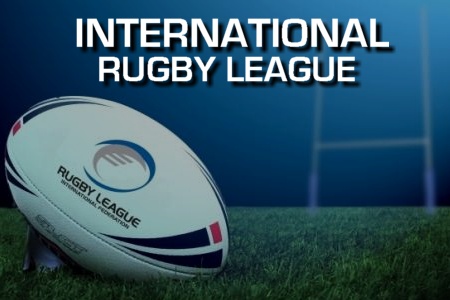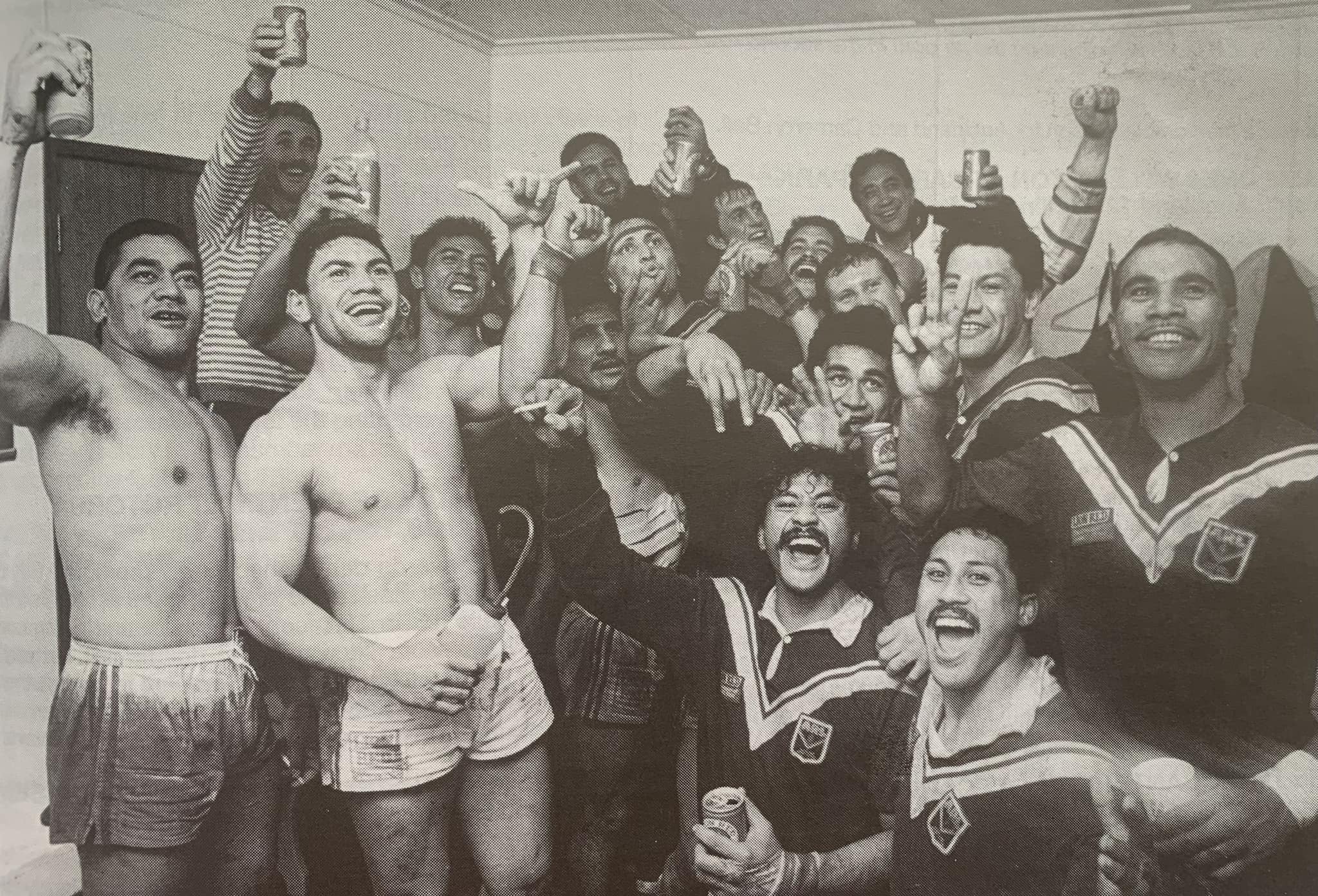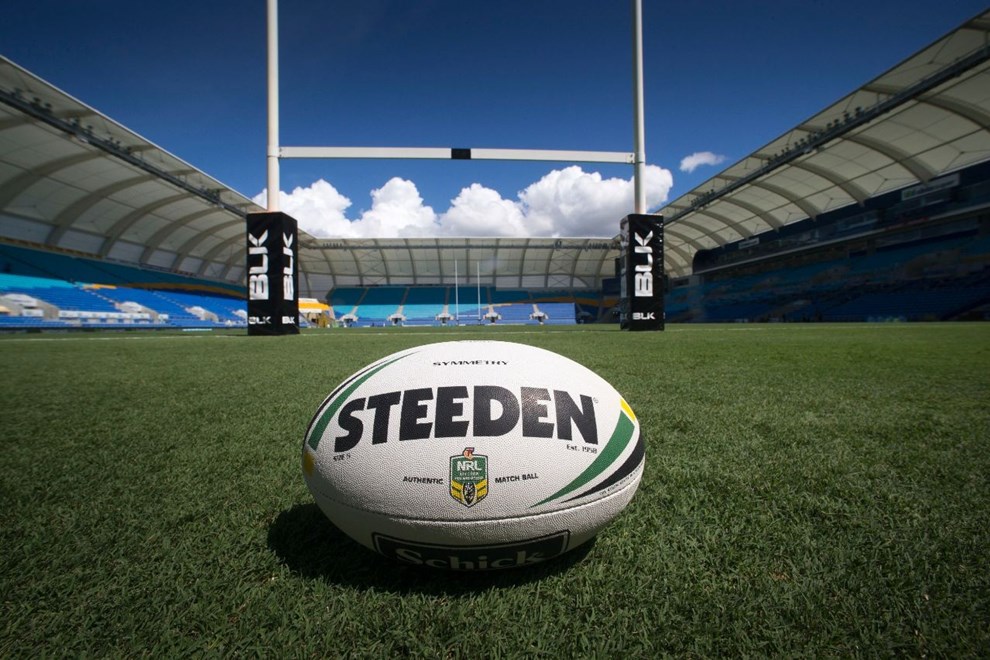Australia, New Zealand and England poach talent from other countries, and then they dare to suggest that no other country can offer them a decent contest, so they refuse to play anyone else.
That is the current situation in international Rugby League right now. You have a bunch of growing Rugby League nations playing games against each other on a regular basis, and as soon as any of them produce a talent of elite calibre, they lose they to one of them!
Because the Rugby League International Federation is a part time organisation, the people that run it actually have other major commitments to their own organisations back home. This is a huge problem because when it comes down to it, you can’t have the inmates running the asylum.
The result is that no one at all is overseeing the international game. No one is in charge of growing it, making it stronger and then protecting it from the self interests of RLIF member nations.
Earlier this year eligibility rules in State Of Origin become a major issue as both NSW and Queensland started recruiting players born and raised outside of Australia. When people looked to the ARL to step in ARL Chairman John Grant made the ludicrous suggestion that the ARL had now power to change eligibility rules and it was up to the RLIF to make a decision on such matters.
John Grant passed the buck completely, it was disgraceful.
The funny thing is that now the Pia Donkeys in France have signed disgraced former Canterbury Bulldogs player Ryan Tandy, and the RLIF has no power what do ever to enforce his ban that was imposed in Australia! They need to rely on the French Rugby League to do the right thing. This just shows what a impotent organisation the Rugby League International Federation really is.
In recent years the Rugby League European Federation has started to build a bit of power. Obviously it has no say outside of Europe, but make no mistake, when the time comes this organisation will vote as a block against Australia, New Zealand and other Pacific Islands nations who have no such organisation. Just the fact that Euopean nations have a fairly active organisation working form them makes the RLEF more powerful than the RLIF.When it comes down to it, the RLEF can start calling the shots and trying to dictate terms to everyone else.
This is why Australia can not afford to sick back and hope someone else will make decisions. As the financial driver of the game, the ARL needs to take a leadershiop role and realise that it is not only reponcible for the game in Australia, it is responcible for Rugby League across the world.
The thing the ARL need to be convinced of though is that a growing international competition actually helps the game in Australia in the long run. After all, the ARL has as much self interest as any other organisation.
The ARL needs to be shown that, if they tighten up eligibility rules themselves, everyone else will follow. That will cut off a supply line of players to Australian representative sides, but the positive thing that would come from such a move would be that Australian representative teams would have better, higher quality opposition from other countries.
That is the argument that needs to be won. The ARL needs to be shown that State Of Origin and the Australian Test side will not lose a single sponsor or a single fan if it stops poaching international players. Once that happens, it needs to be put to the ARL that it can oversee series involving international teams that will in the long run enhance Australian Rugby League itself.
This is where we come back to the issue of eligibility rules.
The game can’t be allowed to continue to canabalize itself. We keep weakening growing Rugby League nations and the the countries that it hurts the most, ironically, are Australia, New Zealand and England. Smaller nations need to be able to draw on their elite players and know they won’t be takes. It make mean that some teams only have two or three NRL quality players in their side, but that is something to build upon.
Look at a team such as Fiji who didn’t have too many big names going into the 2008 World Cup. They had to rely on drafting in Jarryd Hayne. Well now, four years later Fiji could call upon Akuila Uate, Marika Koroibete and Sisa Waqa, all born and raised in Fiji. Those three elite players are a nice way to start any backline. Sure you need more than three top players to start challenging the likes of Australia and New Zealand, but if you can turn out 3 players of their quality so quickly who is to say that in ten years from now Fiji couldn’t have 8 or 9 players of the same calibre? Then….you’re starting to get towards having a side that at the very least could compete with Australia and New Zealand, and that should be the goal.
Can you imagine if the ARL was able to sell a four nations tournament that included the Kangaroo’s and Kiwi’s as well as a competitive teams such as Fiji, Samoa or Tonga? For all of the income State Of Origin makes, what if on those Wednesday nights we could tune in to see New Zealand playing a competitive Samoa or Tonga in Auckland, Wellington or Christchurch and have the game of Rugby League completely take over the same in two different countries.
In Rugby League we get stuck with the idea that on any given day there can only ever be one main even in one place. It doesn’t have to be that way.
The best thing for Rugby League is to be able to give many different nations a team of their own they can look up to. A team of their own they can dream to play for. The only way that will happen though is if we allow other nations to keep the talent they produce and no poach them for our own selfish needs.
It is possible. In my lifetime I have watched New Zealand go from producing some handy players not quite in the same elite class as Australia, to producing not only the worlds best players, but so many elite players that they leave stars out of their test team.
If we give developing Rugby League nations the same chance to grow, they will eventually get there. As NRL clubs look for raw talent from across the world, Australia will develop the players top an elite level. If we tighten up eligibility rules, those players will reward us with quality international competition.
Rugby League’s club competition is incredible. State Of Origin is a phenomenon. If you could add a meaningful international competition to all of that….nothing would stand in the way of Rugby League growing into a global sport.
It all comes back to fixing eligibility rules though. We need to stop the poaching of players from developing countries as soon as possible. Once we do that, Rugby League will go to a new level of popularity.










I’m not sure how you can fail to see that a growing international game would help Australian rugby league. A better international game boosts popularity in other developing nations, apart from more lucrative international games the NRL, being the top league in the world, becomes a more saleable commodity in other nations – therefore making more money. The premier league is arguably the biggest football league in the world and benefits hugely from the worldwide popularity of football.